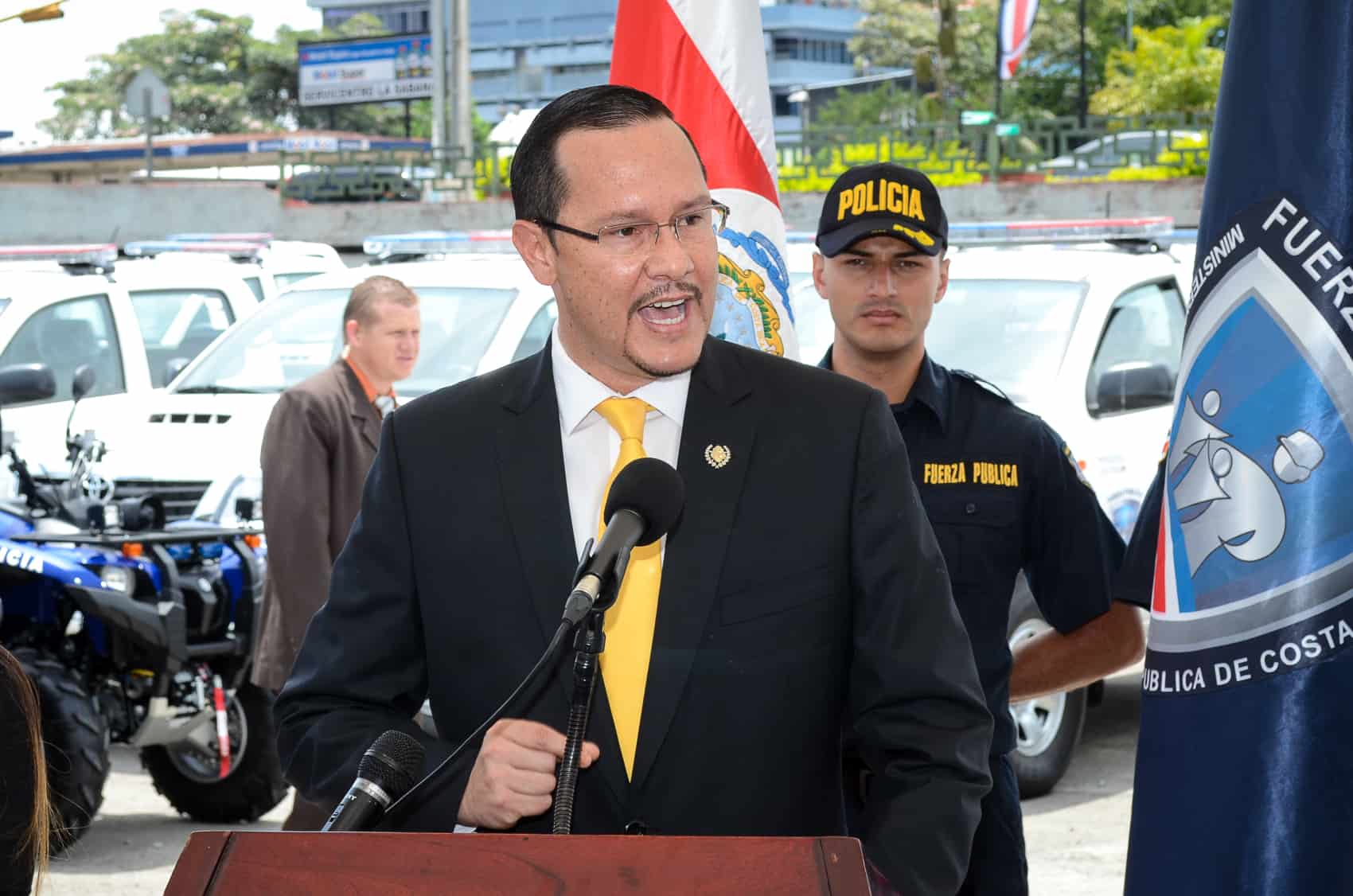Costa Rica’s judicial police arrested Celso Gamboa, a former security minister and Supreme Court judge, on Monday, following a U.S. request for his extradition on drug trafficking charges. The 49-year-old was detained in San Jose, marking a significant moment for the country’s fight against organized crime. This arrest comes just weeks after Costa Rica passed a constitutional reform in May, allowing the extradition of its citizens for drug trafficking and terrorism for the first time in its history.
Randall Zuniga, director of the Judicial Investigation Agency (OIJ), called the arrest a “milestone,” noting that Gamboa is the second Costa Rican to face extradition under the new law. The U.S. Drug Enforcement Agency (DEA) requested Gamboa’s transfer to Dallas, Texas, to face charges of international drug trafficking. Alongside Gamboa, authorities also detained Edwin Lopez Vega, alias “Pecho de Rata,” in Costa Rica’s southern Caribbean region, who is also wanted by the DEA for similar charges.
Gamboa’s high-profile career adds weight to the case. He served as head of the Directorate of Intelligence and Security (DIS) in 2013, security minister in 2014, deputy attorney general in 2015, and Supreme Court justice from 2016 to 2018. His arrest has shocked Costa Rica’s judicial and political circles, with many seeing it as a blow to the country’s institutions but also a chance to strengthen accountability. “No official, no matter how high they’ve climbed, is above the law,” a representative from Costa Rica Íntegra, a civic organization, posted on social media.
Public Security Minister Mario Zamora described the arrest as “the first of many blows” against drug trafficking, emphasizing that involvement in such crimes will lead to punishment, whether in Costa Rica or abroad. The OIJ’s collaboration with the DEA, ongoing for over a year, underscores the international scope of the investigation. Zuniga noted that the case was paused until the extradition reform passed, allowing authorities to act swiftly once the law changed.
Costa Rica, once Central America’s safest country, has seen a surge in drug-related violence. By the end of 2024, the homicide rate reached 16.6 per 100,000 people, more than double the global average, driven largely by drug trafficking. Recent OIJ operations, including a bust of a trafficking ring hiding cocaine in inflatable boats, show the country’s growing role as a transit hub for drugs headed to the U.S. and Australia.
Gamboa and Lopez remain in custody as Costa Rican courts review the U.S. extradition request. A tribunal will verify legal requirements before approving their transfer. The case highlights Costa Rica’s new resolve to tackle drug trafficking head-on, both at home and in cooperation with international partners.






